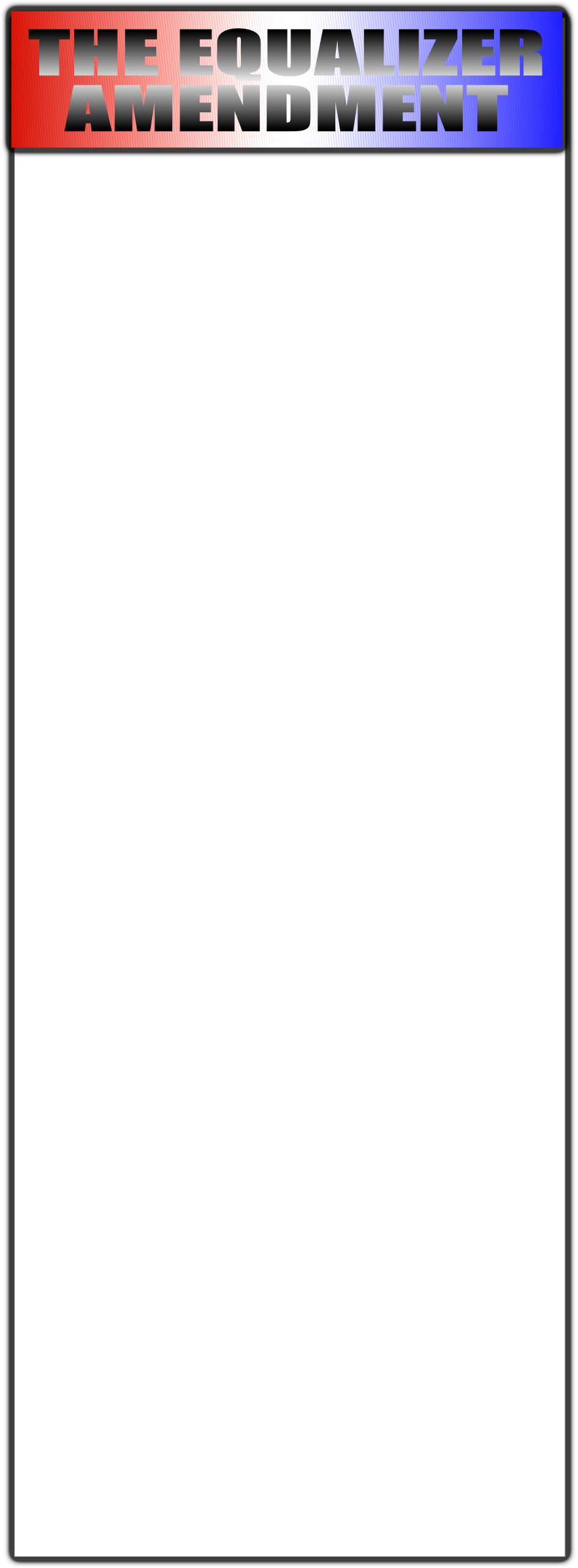
Following is the actual wording of the Equalizer Amendment. The first paragraph of the amendment addresses three objectives. 1) It subjects the federal government to the same laws that the federal government inflicts upon the private sector. 2) It forces all entities created by Congress, including such monstrosities as the Federal Reserve System, Fannie Mae, and Freddie Mac to be either government entities or private entities and nothing in between or outside of these two regulatory categories. 3) It prevents the federal government from playing favorites. To make sure the federal government obeys, it allows citizens to sue the federal government in local, state, or federal courts. Moreover, it asserts the right of citizens to disobey without retribution any law or regulation that does not comply, including noncompliant laws enacted prior to the ratification of the amendment.
The second paragraph forces the federal government to pay taxes just like the rest
of us. They will gain first-
The third paragraph keeps the government from gracing its officers and employees with salaries, benefits, and pensions that are exorbitant in comparison with compensation scales in the private sector.
The fourth paragraph reduces the terms of office of all members of Congress, the President, and the Vice President each year that they spend us into debt. It allows the electorate to kick the irresponsible bums out early.
The amendment is called the Equalizer Amendment because it puts into the hands of the citizens the power to counter the elitism of the government and of those who use the government as an elitist’s tool.
The amendment:
No federal law or regulation shall apply to the citizens of the United States that does not apply equally to all officers and employees of the United States government other than members of the military. Any department or entity that Congress creates shall be treated as a government department or entity, unless the department or entity is made subject to all laws applicable to private entities. No federal law or regulation shall discriminate against or in favor of a private entity or citizen or a group of such entities or citizens on the basis of race, religion, gender, ethnicity, industry type, perceived importance, contributions of money or favors, lobbying activities, or domestic location. Any existing law approved by Congress or regulation approved by the Executive that does not comply with all of the foregoing criteria is null and void and shall not be enforced. Court actions initiated by citizens or states against the United States government concerning the issues of this paragraph may be brought and originally adjudicated in local, state, or federal courts.
Each federal government department other than the military shall pay federal taxes
and be subject to all of the federal, state, and local regulations and reporting
requirements that are applicable to the most heavily taxed and regulated private
profit-
During the fiscal year following a fiscal year in which the percentage of federal
government employees leaving government service due to voluntary termination is lower
than the percentage of non-
If the federal government during a fiscal year shall have spent more than it has taken in as revenue during that year, the remaining term in office of each Representative, of each Senator, of the Vice President, and of the President shall be reduced by one year, except in those cases in which the officer’s remaining term in office at the end of said fiscal year is shorter than one year. Reductions of remaining term in office shall cumulate. The timing of elections shall be adjusted accordingly, the provisions of Sections 2 and 3 of Article I, Section 1 of Article II, and Amendment XVII notwithstanding. Each fiscal year shall end no less than one month prior to a federal election.
"The ultimate result of shielding men from the effects of folly is to fill the world with fools."
-

Hits On This Page
Sponsors
and
Affiliates








